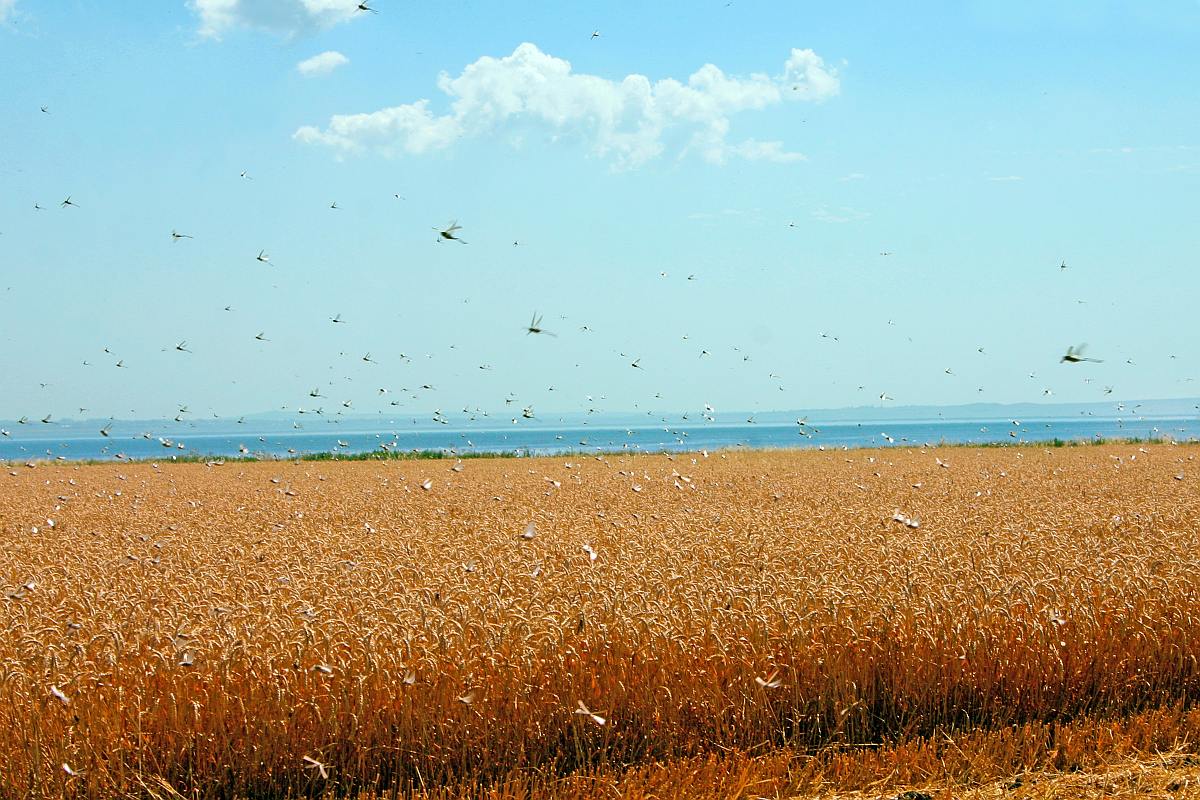UP CM Yogi urges youth to be job creators, not seekers
Uttar Pradesh Chief Minister Yogi Adityanath visited Agra on Sunday to strategise investment promotion in the state and turn proposals into reality.
Locust is a pest which destroys crops and vegetation.

The Rajasthan government had made an emergency plan to deal with it and preparations are being made to spray insecticides from drones in remote inaccessible areas for effective control measures, according to officials. (Representational image: iStock)
As the locust swarm traveling from East Africa has entered the India through Rajasthan and are now traveling towards Uttar Pradesh, the Jhansi district administration has directed fire brigade to keep its vehicle ready with chemicals to prevent the crops.
Locust is a pest which destroys crops and vegetation.
District Magistrate Andra Vamsi, who chaired a meeting in this regard, said, “The villagers along with the common public has been told to inform control room about the movement. The locusts will go places where there is green grass or greenery. Hence, details about the movement at such places must be shared.”
Advertisement
Deputy Director Agriculture Kamal Katiyar said the swarm of locusts, which is moving, is small in size. “We have got news that nearly 2.5 to 3-kilometre long swarm of locusts has entered the country. A team has come from Kota (Rajasthan) to tackle the locusts.” At present, the locust swarm is at Bangra Magarpur in Jhansi. “Spraying of insecticides will be done in the night,” Katiyar said.
Advertisement
According to Locust Watch, “The current situation remains extremely alarming in East Africa where Kenya, Ethiopia and Somalia continue to face an unprecedented threat to food security and livelihoods. New swarms from current breeding will form from mid-June onwards, coinciding with the start of the harvest. Thereafter, there is a risk that swarms will migrate to the summer breeding areas along both sides of the Indo-Pakistan border as well as to Sudan and perhaps West Africa.”
The Food and Agriculture Organisation of United Nations also said, “As vegetation dries out, more groups and swarms will form and move from these areas to the summer breeding areas along both sides of the Indo-Pakistan border as several waves from now until at least early July. Good rains are predicted during the first half of June along the Indo-Pakistan border that would allow egg-laying to occur. This should reduce the further eastward movement of swarms that have already arrived in Rajasthan, India.”
Advertisement